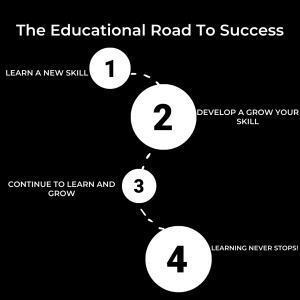Determinant Factors in Choosing a Career
Choosing a career is one of the most important decisions you’ll make in life. Not only does it affect your income, but it also has a profound impact on your happiness and satisfaction. If you’re not careful about choosing a career path, you could find yourself dissatisfied with your work for decades to come.
To help with this decision-making process, first, think about what attributes are important to you when making a choice like this. Are you interested in helping others? Are you more interested in working independently? Do you want an intellectually stimulating job or do work that allows for creativity? These interests can all be helpful as you try to choose which career path is best for you.
Any career choice should be based on your interests, abilities, and personality.
Your interests, abilities, and personality are the most important factors in choosing a career. If you have not yet determined these three things about yourself, there are some tools you can use to help make this process easier.
- Interests: List out the skills that you deem the most interesting or the ones that you have a good hold of. Then, try to take this Holland code career test (or a similar assessment) to figure out what type of job best suits your skills and interests. After you know what you’re good at, you can start looking for jobs that match your skill-set.
- Abilities: For this, you should ask yourself a question: what unique abilities do you have? Make a list of the abilities that make you stand out. Then, research job postings that match those skills and abilities.
- Personality: Take an online quiz that measures how extroverted/introverted and conscientious/unconscientious you are so that it shows how well each job type fits with who you are.
A good career choice should match your values and goals.
Identifying and aligning your values and goals is crucial as they form the bedrock of your beliefs and aspirations in life. This is particularly significant when it comes to making career choices. It’s essential to choose a career that resonates with your values and interests from the outset. For instance, if you have a keen interest in dentistry, pursuing a career as a dental assistant could be a wise choice. To embark on this path, exploring Dental Assistant Courses Utah or your specific region can provide the necessary skills and knowledge, ensuring your career aligns with your values, making it more motivating and fulfilling in the long run.
Similarly, if you have a passion for providing childcare or child education, you might find it beneficial to pursue a career as a child care worker, early childhood educator, or in similar roles. To embark on such careers, you may want to find an early years course that offers comprehensive training in child development, pedagogy, and family engagement. By enrolling in an early years course, you can acquire the necessary qualifications and expertise to make a positive impact on the lives of young children and their families, aligning your career with your passion for nurturing and educating the next generation.
You must consider the time commitment necessary for each career path you’re interested in.
The time commitment for each career path varies, but you should definitely consider it when making your decision. Here are some examples:
- Some careers require working more than 40 hours per week. For example, doctors must work long hours in order to perform surgeries and exams, as well as spend time with patients during appointments.
- Some careers require working every day of the week. For example, if you choose to become a chef or an artist who works at home, this could mean that your entire life revolves around your job instead of having personal time outside of it (unless they hire help).
- Some careers require you to learn specific things. You might be required to take up courses and diplomas so that you can specialize in a field. For example, if you want to explore DOT testing careers in the transportation industry, you would be required to take up certification, licensing, and training to be eligible for the role. Likewise, the prerequisites for the job you like may vary, for which you need to qualified.
- Some careers require working long periods throughout the year. This could mean fewer vacations or holidays because there is extra work needed during those times, such as tax season for accountants or busy seasons like summertime for retail stores and restaurants/bars where most people go out to eat more often than usual.
Think about the future.
One of the most important factors to consider when choosing a career is the future. It may seem like an obvious point, but it’s easy to forget that you can’t predict what’s going to happen in the world or your life any more than anyone else can.
However, you do need to be prepared for things that aren’t necessarily going to happen as they have in the past. In other words, don’t let yourself be stuck in thinking about how your job will turn out based on what happened last year or even last decade; instead, focus on getting ready for whatever might come along next with confidence and flexibility.
Don’t ignore the money.
Money isn’t everything, but it can be pretty darn close. And while we all know this to be true on some level, many of us tend to ignore the importance of money in career choice. For most people, money plays a vital role in achieving their goals and providing for themselves and their families. Most people want to live comfortably without having to worry about amassing debt or not being able to pay bills each month.
The work should feel like play to you.
If you find yourself struggling to complete a task, or if you are bored at work, it might be time to evaluate whether your career choice is right. If the work feels like play and not something that drags on into the evening, then chances are good that you’re doing what you love and will be successful in your field.
The world of work is changing, and the talents and skills that we need now are different from those that were needed in the past. The good news is that there are many ways to make a living, so you can choose the one that fits your life and values best.
You can also find fulfillment in pursuing multiple careers at once or switching between them as your interests change over time. Ultimately though, it comes down to finding work that brings you happiness!


